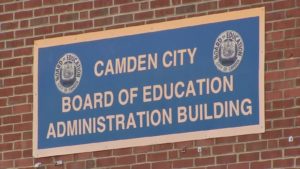Last August New Jersey Monthly ran competing editorials by Bob Braun, former Star-Ledger editor and current ed reform-basher, and Jonathan Alter, political writer covering education, fiscal policy, terrorism, anti-Semitism, at-risk children, and national service. Braun’s is called “It’s not Reform, It’s Hijacking” and Alter’s is called “Making Magic in the Classroom.”
In this version of Crossfire, Braun plays his favorite role: defender of the status quo, scorner of change, and disseminator of misinformation:
We do not oppose making schools more accountable, equitable and effective—but we do oppose wrecking a 200-year-old institution—public education—that is still successful in New Jersey.
Public schools give students from all backgrounds a common heritage and a chance to compete against privileged kids from private schools. We don’t want schools replaced by the elitists’ dream of privately managed, publicly funded charter schools, which can be money makers for closely aligned for-profit entities…New Jersey is not the basket case Christie says it is. Urban schools are not failure factories. We don’t need a hostile takeover by Wall Street.
All the talk of “corporatizing” schools is baloney. The benefactors are simply after better student and teacher performance—and they’re getting it. If you don’t believe me, visit Newark charter public schools like North Star Academy or TEAM Academy, where the student population is almost all non-white and the waiting lists are long. There is magic in their classrooms. With more than three-quarters of their students in grades three through eight scoring “advanced” or “proficient” on yearly assessments, they not only outperform neighboring traditional public schools by more than 30 points, they beat white suburban schools.
Yes, there are several first-rate non-charter schools in Newark that don’t get enough attention. But more than 10 percent of Newark’s 75,000 students now attend charters. Do the critics really want those parents and children to give up their dreams? Do they really mean to argue that if you can’t help all Newark students, you shouldn’t help any?



